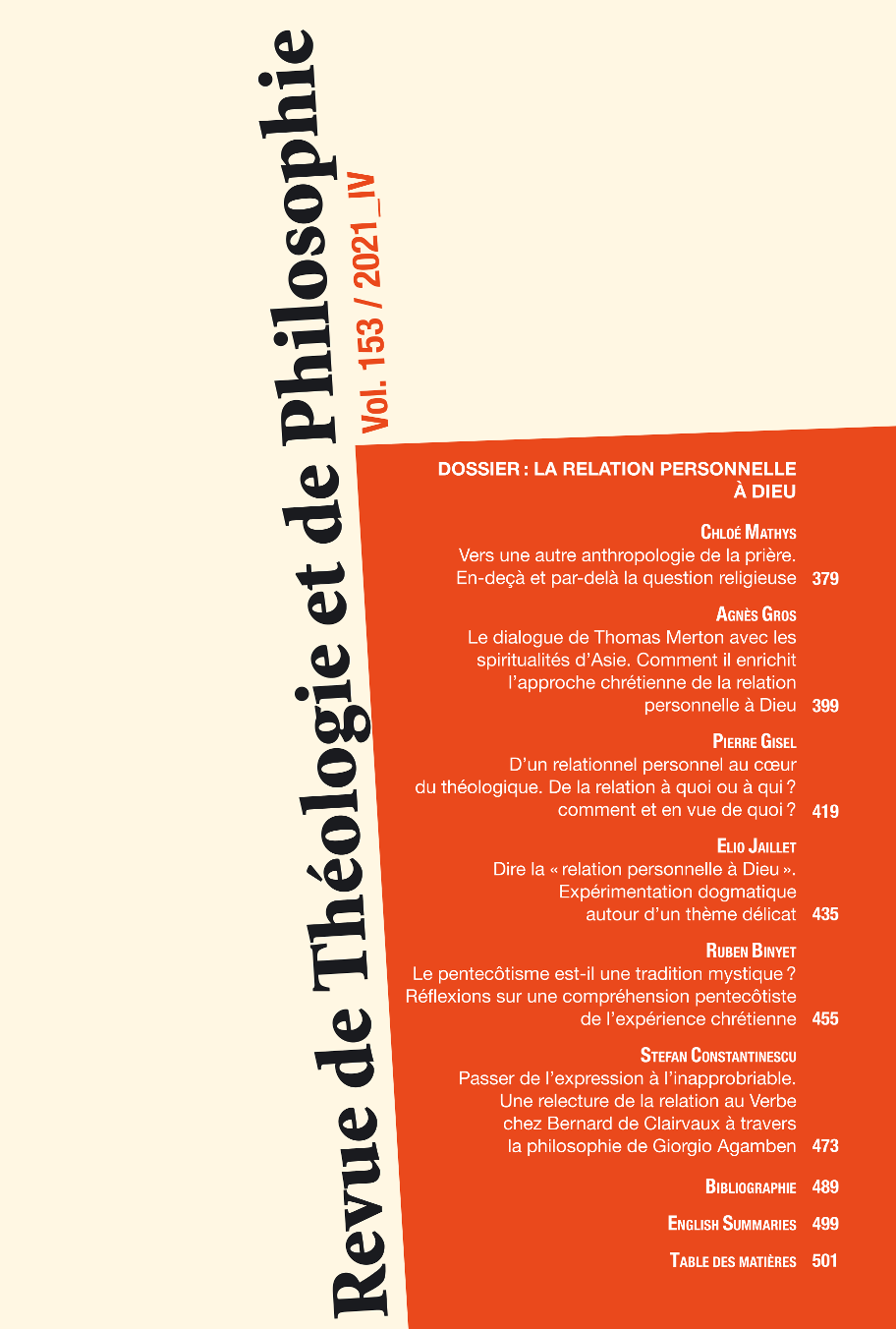On Personal Relationality Within Theology
Relationality to What/Whom? How, and For What Sake?
Abstract
Starting with the contemporary situation and its impact on religion, namely a breakdown of social mediations and the growth of private religiosities based on (supposedly) direct relations to truth, this article recasts several motifs in order to disturb certain dualisms. The aim is to rethink mediations in relation to religious and social dimensions, to rethink exteriority in relation with the human subject, and to rethink tradition as a cultural and institutional crystallisation of a given path toward human realisation, a path that is in need of examination as such, independently from any self-referential system. The article then considers Christianity as the fruit of a process of acculturation within particular societies and cultures, enjoying various referential – and irreducible – points. In this light, the motif of religious experience is interrogated in relation to what can be termed as transcendence, which is in fact always also related to the world, to what we experience in the world and what we can say about it, thus (and only thus) rendering this experience potentially fruitful.
How to Cite
More Citation Formats
Most read articles by the same author(s)
- Pierre Gisel, What can Luther’s views on Jews teach us today?, Revue de Théologie et de Philosophie: Vol. 152 n° 1 (2020):
- Pierre Gisel, What kind of religious communities in what kind of civil society?, Revue de Théologie et de Philosophie: Vol. 152 n° 2 (2020): Michel de Certeau (1925-1986) et la Compagnie de Jésus
- Pierre Gisel, Bernard Hort, Gérard Siegwalt. Un protestantisme inclusif, Revue de Théologie et de Philosophie: Vol. 151 n° 3 (2019):
